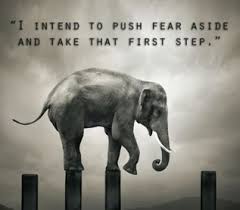AnxietyPath is a safe community environment supported by professional counselors. We are a free self help destination to receive support and guidance for recovery from anxiety and phobias
Seek Out Opportunities To Expose Your Anxiety
 The only way we can create anxiety recovery is by experiencing anxiety. Anxiety recovery is not stopping anxiety in some way, or never feeling it ever again. Anxiety recovery is learning to change your response to your specific triggers. As well as managing your thoughts, which will lead to recovery. This can only be learned while actually feeling the anxiety. We call this “anxiety exposure.”
The only way we can create anxiety recovery is by experiencing anxiety. Anxiety recovery is not stopping anxiety in some way, or never feeling it ever again. Anxiety recovery is learning to change your response to your specific triggers. As well as managing your thoughts, which will lead to recovery. This can only be learned while actually feeling the anxiety. We call this “anxiety exposure.”
For specific phobias or specific triggers, this means actively seeking out opportunities to expose yourself to your triggers. This is how you learn to work with anxiety. We call this “purposeful practice.”
For generalized anxiety, or when anxiety levels are typically higher, then we have more opportunity to practice. But it is still necessary to carve out some time and create a purposeful practice.
Anxiety Is Irrational
Nothing can simulate what we feel like when our anxiety levels increase. Anxiety is irrational. That’s why talk therapy alone or approaching anxiety recovery from an intellectual point of view only typically does not help farmbrazil.com.br. We have to actively engage anxiety and expose ourselves to the fear which it ignites in us, and learn to manage it.
When given a choice, all exposure to anxiety should be done in “small, manageable” steps. We are not trying to scare ourselves. Or even worse reinforce the negative response behavior we currently have. We want to be able to feel the anxiety and learn to respond in a more productive and positive way.
As we learn to work through the feelings, even for only short periods of time, then we begin to become desensitized to our specific triggers. This is true for more generalized anxiety as well. All anxiety begins as a single thought in our minds – all of it – when we learn that we can have an anxiety-provoking thought and respond to it differently, then change begins – and recovery is started.
We will explore purposeful practice in further detail, and discuss how to learn to manage our thoughts, even with high levels of anxiety (fear).
Fear To Fearless
Categories
© 2020 AnxietyPath Powered by G SOUL INC